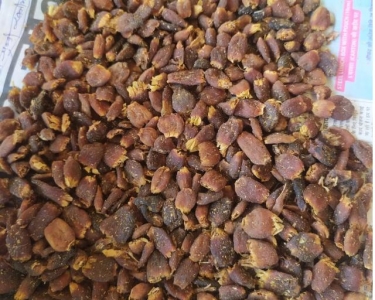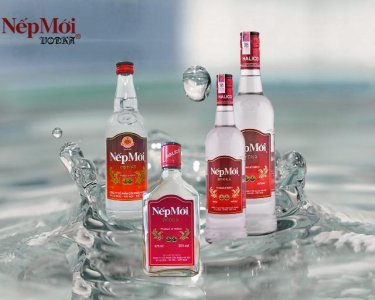Live animals
Couldn't find the product you want?
Fill out this form to request the product.
Products You May Like
Export from Liechtenstein
Liechtenstein is a small country situated on the east bank of the Rhine River, south of Lake Constance, between Austria and Switzerland. It consists of low valley land and alpine peaks. Around half of Liechtenstein lies in the mountains (Central Alps).
Being a small, but a very productive country, we see that the domestic market of Liechtenstein is not able to consume everything produced in the Principality. Therefore, import and export are key to the economy, with many more goods and services exported than imported.
Liechtenstein mainly exports machinery, metal by-products, vehicles, chemical products, beverages and processed food.
Liechtenstein's main exports partners are Germany, the United States, Austria, Finland, Italy, China, the United Kingdom, Spain and Sweden.
Industries of Liechtenstein include: electronics, metal manufacturing, textiles, ceramics, pharmaceuticals, food products, precision instruments and the country mainly exports the following commodities: small specialty machinery, dental products, stamps, hardware, pottery. But that is not all, Liechtenstein also deals in nuclear reactors, boilers, machinery and mechanical appliances; Natural or cultured pearls, precious or semi-precious stones, precious metals, metals clad with precious metal and articles thereof; imitation jewelry; coin; Optical, photographic, cinematographic, measuring, checking, precision, medical or surgical instruments and apparatus.
Sellers, importers and exporters are welcome at Export Portal. Here is an ideal place to develop the steady trade within Liechtenstein and out of it, worldwide.
Import to Liechtenstein
Liechtenstein is a small country, which enjoys a position in the heart of Europe on the banks of the Rhine between Germany, Austria and Switzerland. The principality of Liechtenstein encompasses most of the right (eastern) half of the Rhine Valley, wedged between Austria and Switzerland.
Liechtenstein's small size means that it is not able to produce everything it needs. With no natural resources and a small domestic market, foreign trade is of major importance to Liechtenstein's economy. Liechtenstein imports the commodities that are necessary for its citizens well-being. Top products imported to Liechtenstein are: vehicles other than railway or tramway rolling stock, glass and glassware, articles of iron or steel, agricultural products, raw materials, machinery, metal goods, textiles, foodstuffs, motor vehicles.
International agreements of Liechtenstein guarantees an access to important markets.
The Principality of Liechtenstein is also a member of the European Free Trade Association (EFTA) and benefits from one of the world's largest networks of free trade agreements. Since the conclusion of the Customs Treaty in 1923, Liechtenstein has shared a common customs area with Switzerland, meaning that bilateral free trade agreements between Switzerland and other countries also apply to Liechtenstein. The Swiss franc is the official currency in Liechtenstein.
The country participates in a customs union with Switzerland and uses the Swiss franc as its national currency. It imports more than 85% of its energy requirements. Liechtenstein has been a member of the European Economic Area (an organization serving as a bridge between European Free Trade Association (EFTA) and EU) since May 1995. The government is working to harmonize its economic policies with those of an integrated Europe.
The main trading partners of Liechtenstein, thereof, are: member states of the European Union, Switzerland, Germany and the US.
Export Portal is happy to welcome all the interested partners that are wishing to increase their income by setting trading partnership agreements between Liechtenstein and the whole world!
Check Out Export Portal: A Site That Lets You Export Live Animals
If you are looking to buy and export animals, then you came to the right place! Export Portal's Live Animals Department is an online marketplace for sellers and buyers of any livestock. We work to contribute to the live export industry, which brings many economic advantages and other benefits to countries that rely heavily on livestock imports. In fact, in just Australia alone, this industry contributes roughly $1.8 billion to the country's GDP each year. Moreover, it also ensures food security while helping people meet their protein needs as well.
Finding the Right Animal
We feature a wide range of pigs, cows, sheep, goats, horses, rabbits and hares, turkeys, bees, and fish for sale. An increasing number of American, Australian, German, South African, Argentinian, and Italian farmers and companies are advertising their livestock with Export Portal, portraying just how effective and helpful our site is.
To help customers make more informed purchasing decisions, our site lets users narrow down their searches by the age, breed, and sex of the animal. If you are feeling hesitant to shop on our site and want more detailed information, make sure to check out our seller ratings and reviews, which are written by our buyers and customers. We also collaborate with hundreds of trusted international shipping companies that arrange the transport of all kinds of animals and birds to any country in the world.
Online Shopping is More Simple with Export Portal
Export Portal is an ideal site for everyone who is an avid online shopper. Our convenient options make it easy to find and buy whatever you are looking for. Our seller network from all over the world has everything you need, and our customer support team will make sure you can find it. Our wide assortment of products will be sure to provide you with the best shopping experience. Make sure to check out our site and items today!
Customs requirements of Liechtenstein
Liechtenstein Customs Contacts
Website: http://www.ezv.admin.ch/
Address: Vorarlbergerstrasse 233, 9486 Schaanwald
Tel: 00423 377 73 73
Liechtenstein is a doubly landlocked German-speaking microstate situated in Central Europe, bordered by Switzerland and Austria. Liechtenstein has the 3rd highest GDP per person in the world. The country is a member of the European Free Trade Association (EFTA), World Trade Organization (WTO) and other international organizations.
Tariffs
Liechtenstein applies Switzerland customs duties and import tariffs, based on the customs union treaty of 1923 between Liechtenstein and Switzerland. Tariffs and duties depend on the products and are listed on comprehensive tariffs and duties lists.
Liechtenstein also adopted the VAT law of Switzerland. The general VAT rate is 8%. Various services are VAT-exempt (e.g. health, social security, education, banking, insurance).
Liechtenstein applies excise taxes, such as petroleum tax, tobacco tax, car tax, CO2 tax, beer tax, salt tax, taxation of distilled spirits).
Product certification, packaging and labeling
All imported goods must be presented to the appropriate customs office and declared for clearance. Imports must be declared within one day (at latest) of arrival in the country, no matter the means of transport. The importer may examine goods before submitting them for clearance.
For customs purposes, an ordinary commercial invoice is considered sufficient documentation. The invoice should contain: a description of the products and packaging, gross and net weight of each package, quantity (in metric terms), country of origin, and c.i.f. value to the Swiss/Liechtenstein border.
A certificate of origin may be required for preferential tariffs, health, or quality control reasons. For instance, special health certificates, stamped by the competent authorities of the country of origin, are required for imports of horses, bovine animals, farm animals, certain domestic animals, bees and eggs for hatching, meat, game, seafood, beeswax, and comb honey from non-EC member countries. Official plant health certificates from the country of origin must accompany shipments of vegetables, fresh fruits, and wild plants.
Switzerland and Liechtenstein may prohibit imports according to their origin or for phytosanitary reasons. Imports of agricultural goods may be prohibited temporarily or permanently for phytosanitary reasons.
As a general rule, the label and packaging for consumer goods must indicate the specific name of the product (in French, German, and/or Italian), metric measure, sales or unit price, weight of each component in the case of mixed products, and ingredients and additives in decreasing order of weight.
In addition to the standard information, labels on biological (or eco) products must show the name and address of the producer, and indicate "organic/biological product".
Documents for import
- Bill of lading
- CMR waybill
- Commercial invoice
- Customs import declaration
- Packing list
Sources:
http://www.ezv.admin.ch/zollinfo_firmen/04020/index.html?lang=en
http://taxsummaries.pwc.com/uk/taxsummaries/wwts.nsf/ID/Liechtenstein-Corporate-Other-taxes
http://www.doingbusiness.org/data/exploreeconomies/switzerland/#trading-across-borders
https://www.wto.org/english/thewto_e/countries_e/liechtenstein_e.htm





